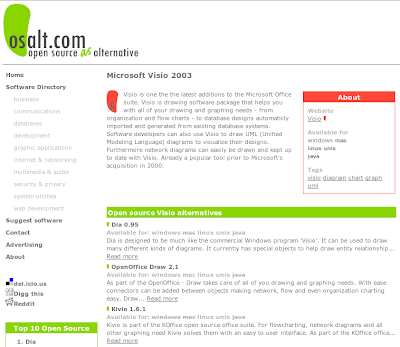Comparing a hypothetical donation of $25 million dollars
I believe that contributing to open source software is the most efficient kind of charity and philanthropy. (I'll leave it to someone else to convince the IRS to give me a tax write-off for the hours I spend on improving open source.) To illustrate this, let us consider a hypothetical $25 million dollar donation made by both Bill Gates and Mark Shuttleworth.

Bill Gates could use his $25 million dollar donation to donate free licenses of Microsoft Windows Vista Ultimate ($400/each) and Microsoft Office Professional ($500/each). At those prices, he could give away about 30,000 copies of that software. Many people would be able to use the software, but due to license restrictions, only 30,000 people could use the software at the same time. It is nice that Bill Gates decided to help these 30,000 people, but lets look at another way that this money could be spent.
Mark Shuttleworth uses his $25 million dollar donation to build upon an existing open source operating system (Debian Linux). He creates Ubuntu Linux, which is made available to everyone for free. This means that his contribution has the potential to help the entire world population of 6.5 billion people!
Who's contribution will have the greatest positive impact on the world? By my estimate, the money spent on open source helped 20,000 times more people than the proprietary software donation. That is why I call open source software the most efficient use of charity resources.
(Note: In reality, Mark has already contributed a sum of around $25 million dollars to fund the creation and development of Ubuntu. In comparison, Bill Gates has contributed hundreds of millions of dollars to his charity.
However, if Mr. Gates truly wants his money to be the most effective at helping the world, then he should contribute some of his money to open source software. Yes, I understand that open source software does not directly feed starving people, but it has the potential to help their situation.)

Bill Gates could use his $25 million dollar donation to donate free licenses of Microsoft Windows Vista Ultimate ($400/each) and Microsoft Office Professional ($500/each). At those prices, he could give away about 30,000 copies of that software. Many people would be able to use the software, but due to license restrictions, only 30,000 people could use the software at the same time. It is nice that Bill Gates decided to help these 30,000 people, but lets look at another way that this money could be spent.
Mark Shuttleworth uses his $25 million dollar donation to build upon an existing open source operating system (Debian Linux). He creates Ubuntu Linux, which is made available to everyone for free. This means that his contribution has the potential to help the entire world population of 6.5 billion people!
Who's contribution will have the greatest positive impact on the world? By my estimate, the money spent on open source helped 20,000 times more people than the proprietary software donation. That is why I call open source software the most efficient use of charity resources.
(Note: In reality, Mark has already contributed a sum of around $25 million dollars to fund the creation and development of Ubuntu. In comparison, Bill Gates has contributed hundreds of millions of dollars to his charity.
However, if Mr. Gates truly wants his money to be the most effective at helping the world, then he should contribute some of his money to open source software. Yes, I understand that open source software does not directly feed starving people, but it has the potential to help their situation.)


Comments
Post a Comment